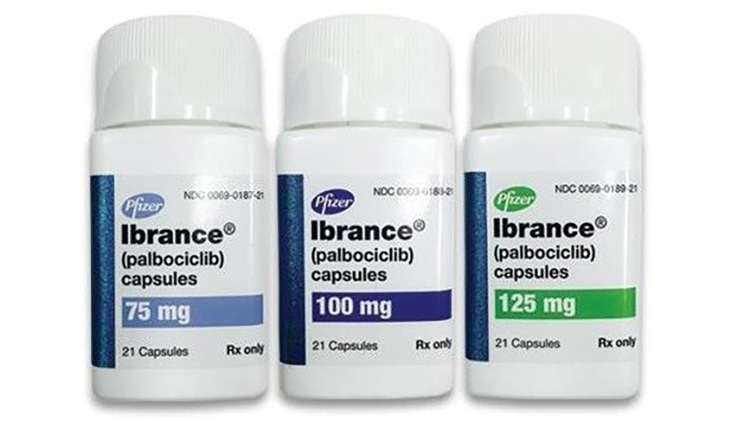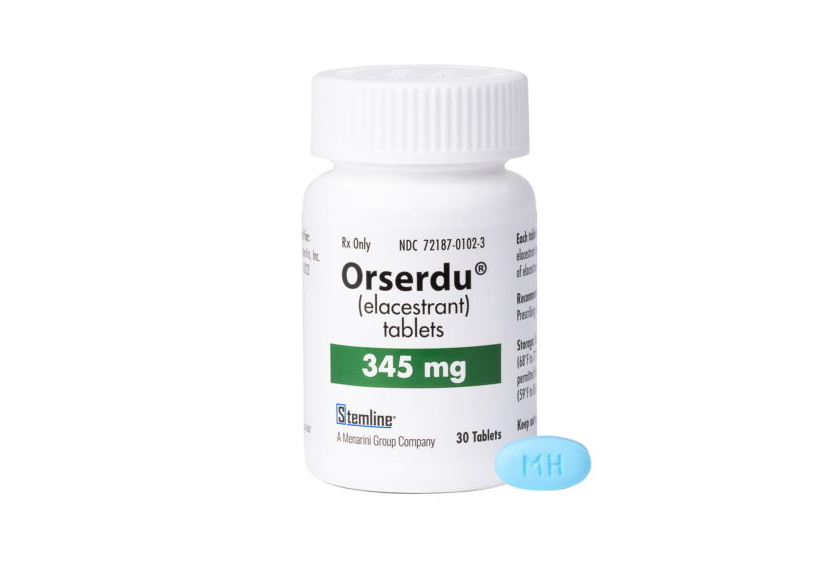Ibrance (palbociclib) vs Orserdu (elacestrant)
Ibrance (palbociclib) vs Orserdu (elacestrant)
Ibrance (palbociclib) is a CDK4/6 inhibitor used in combination with hormonal therapies to treat HR-positive, HER2-negative advanced or metastatic breast cancer, primarily indicated for postmenopausal women. Orserdu (elacestrant) is a selective estrogen receptor degrader (SERD) that targets estrogen receptor-positive (ER+) breast cancer, and it can be used in patients who have progressed on or after prior endocrine therapy. When deciding between Ibrance and Orserdu, a patient should consider factors such as the specific molecular characteristics of their cancer, previous treatments, potential side effects, and the mechanism of action of each drug, in consultation with their oncologist.
Difference between Ibrance and Orserdu
| Metric | Ibrance (palbociclib) | Orserdu (elacestrant) |
|---|---|---|
| Generic name | Palbociclib | Elacestrant |
| Indications | HR-positive, HER2-negative advanced or metastatic breast cancer | ER-positive, HER2-negative advanced or metastatic breast cancer |
| Mechanism of action | CDK4/6 inhibitor | Estrogen receptor degrader |
| Brand names | Ibrance | Orserdu |
| Administrative route | Oral | Oral |
| Side effects | Neutropenia, leukopenia, infections, fatigue | Nausea, vomiting, increased blood creatinine, fatigue |
| Contraindications | Hypersensitivity to palbociclib or any excipients | Hypersensitivity to elacestrant or any excipients |
| Drug class | Antineoplastic agent | Antineoplastic agent |
| Manufacturer | Pfizer | Radiopharm Theranostics |
Efficacy
Efficacy of Ibrance (Palbociclib) in Breast Cancer
Ibrance (palbociclib) is a targeted therapy known as a cyclin-dependent kinase (CDK) 4/6 inhibitor, which is specifically designed to treat certain types of breast cancer. It is used in combination with hormonal therapies to treat hormone receptor-positive (HR+), human epidermal growth factor receptor 2-negative (HER2-) advanced or metastatic breast cancer. Clinical trials have shown that palbociclib, when used in combination with letrozole or fulvestrant, can significantly improve progression-free survival compared to hormonal therapy alone. This has led to its approval and widespread use as a first-line treatment for postmenopausal women and men with this subtype of breast cancer.
The efficacy of Ibrance is particularly notable in patients with HR+/HER2- advanced breast cancer. In these patients, the addition of palbociclib to standard endocrine therapy has resulted in a delay in disease progression. However, it is important to note that while Ibrance has been shown to improve progression-free survival, an increase in overall survival has been more challenging to demonstrate. The benefits of Ibrance must also be weighed against its potential side effects, which can include neutropenia, fatigue, and infections.
Efficacy of Orserdu (Elacestrant) in Breast Cancer
Orserdu (elacestrant) is a newer medication that is classified as a selective estrogen receptor degrader (SERD). It is designed to treat the same HR+/HER2- advanced or metastatic breast cancer as Ibrance, but it works through a different mechanism. Elacestrant binds to the estrogen receptor, causing its degradation, which in turn can inhibit the growth of breast cancer cells that rely on estrogen signaling. While clinical trial data for Orserdu is more limited compared to Ibrance, early results suggest that it may be an effective treatment option for patients who have previously received endocrine therapy and CDK 4/6 inhibitors like palbociclib.
Initial studies of Orserdu have shown promise in patients with HR+/HER2- advanced breast cancer, including those who have developed resistance to other hormonal therapies. The medication has been evaluated in both premenopausal and postmenopausal women, and results indicate a potential improvement in progression-free survival. As with any new treatment, further research is necessary to fully understand the long-term efficacy and safety profile of Orserdu. Clinical trials continue to assess its role in the treatment landscape of advanced breast cancer, particularly in comparison to other established therapies.
Regulatory Agency Approvals
Ibrance
-
European Medical Agency (EMA), European Union

-
Food and Drug Administration (FDA), USA

-
Health Canada

-
Therapeutic Goods Administration (TGA), Australia

-
Medsafe (NZ)

Orserdu
-
Food and Drug Administration (FDA), USA

Access Ibrance or Orserdu today
If Ibrance or Orserdu are not approved or available in your country (e.g. due to supply issues), you can access them via Everyone.org.
How it works

Make an enquiry
Choose the medicine you want to buy, answer a couple of questions, and upload your prescription to speed things up. We’ll get back to you within 24 hours.


Make an enquiry
Choose the medicine you want to buy, answer a couple of questions, and upload your prescription to speed things up. We’ll get back to you within 24 hours.


Breeze through the paperwork
We'll guide you through the required documents for importing unapproved medicine, ensuring you have all the necessary information.


Get a personalized quote
We’ll prepare a quote for you, including medicine costs and any shipping, administrative, or import fees that may apply.


Receive your medicine
Accept the quote and we’ll handle the rest - sourcing and safely delivering your medicine.

Some text on this page has been automatically generated. Speak to your physician before you start a new treatment or medication.
Let's talk
If you have any questions, call us or send us a message through WhatsApp or email:
Contact us




